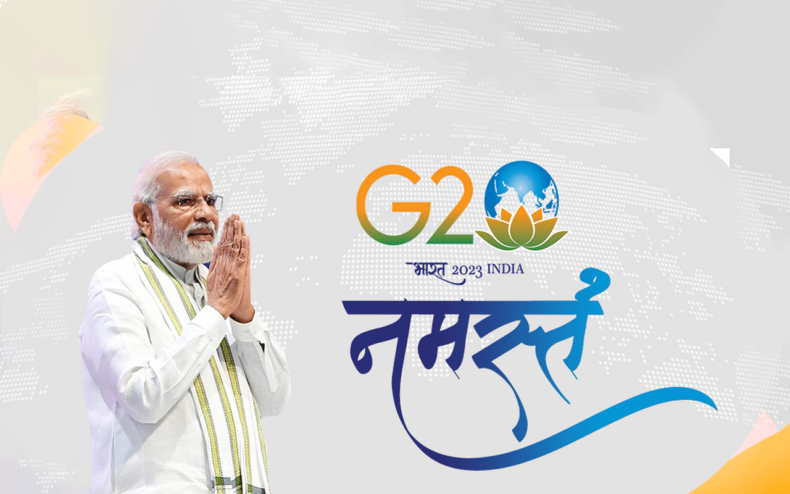As the much-anticipated G20 Summit approaches, a heated dispute has arisen between the Aam Aadmi Party (AAP) and the Bharatiya Janata Party (BJP) over the funding of beautification projects in Delhi. With the G20 Summit scheduled to take place on September 9th and 10th in the national capital, the parties are engaged in a war of words regarding the financial sources behind the city’s transformation.
The G20 Summit: A Platform for Global Cooperation
Amidst the fervor surrounding the AAP-BJP dispute, it is crucial to contextualize the significance of the G20 Summit itself. Established in 1999, the G20 comprises twenty of the world’s most influential economies, regularly convening to coordinate global policy on trade, health, climate, and other pressing issues. Previous summits have tackled crucial matters such as the COVID-19 pandemic, the aftermath of the 2008 financial crisis, the Iranian nuclear program, and the Syrian civil war.
However, the Russian invasion of Ukraine has cast a shadow over the group, deepening divisions and straining consensus. The 2022 summit held in Bali, Indonesia, saw the G20 grapple to find common ground on economic matters, showcasing the challenges of aligning diverse economies and viewpoints.
Remarkably, the ownership of hosting the G20 Summit fell to India, underscoring the nation’s growing stature in global affairs. As the nation prepares to welcome representatives from member and guest nations, the spotlight on Delhi’s transformation has been magnified, signifying the magnitude of the event.
Dispute Over Funding Source

Delhi’s Minister for Transport, Saurabh Bharadwaj, ignited the debate by asserting that the Lieutenant Governor (LG) VK Saxena does not possess the constitutional authority to approve funds for projects within the national capital. In a statement made on Monday, Bharadwaj highlighted that the funds used for the projects undertaken by the Public Works Department (PWD) and the Municipal Corporation of Delhi (MCD) are derived from taxpayers’ money. The Minister emphasized that the PWD had not received any financial support from the Central government, dispelling claims of external funding. Notably, PWD’s efforts have resulted in the beautification of 89 roads through tasks such as tree planting, resurfacing, and general cleaning.
Bharadwaj vehemently defended the Delhi government’s financial control, clarifying that the funds allocated were generated from local taxpayers and not from any external source, including the Central government or the LG. He challenged critics to provide any constitutional or legal basis that empowers the LG to authorize the allocation of funds. “Show me any article of the Constitution or lawbook that gives LG power to sanction even a single penny,” Bharadwaj reiterated. He underlined the accountability of the PWD engineer to various governing bodies and asserted that the LG lacked such accountability.
Response and Counterresponse
In response to the Minister’s assertions, LG Saxena acknowledged that any party could claim credit for the work completed, indicating that the Centre’s involvement was aimed at achieving tangible progress. “I don’t want to comment much on it. But would only like to say that we will continue doing our work. If someone wants to take credit for it, they can. I am satisfied with this thing that if I am doing some work and someone wants to take credit for it, it means that we are doing good,” said Saxena.
The confrontation between the political factions intensified after the BJP asserted that the Central government had financed Delhi’s makeover for the upcoming G20 Summit. The party accused the AAP-led government of attempting to seize credit for the transformative initiatives. In response, the AAP expressed astonishment at the BJP’s claims and criticized the rival party for attempting to appropriate the developmental achievements of the city government. AAP clarified that all the funds allocated for PWD roads were disbursed and utilized by the PWD of the Delhi Government, while MCD roads were financed by the MCD.
As the G20 Summit draws near, the spotlight remains on the ongoing feud between the AAP and the BJP. The Summit, set to host representatives from member and guest nations, will facilitate discussions on diverse economic reforms. The event will culminate in the adoption of a G20 Leaders’ Declaration, encapsulating the priorities and agreements reached during the meetings.
As Delhi prepares to welcome international dignitaries and spotlight the city’s transformation, it becomes evident that the political wrangling between the AAP and BJP continues to captivate attention.
The confrontation between the political factions intensified after the BJP asserted that the Central government had financed Delhi’s makeover for the upcoming G20 Summit. The party accused the AAP-led government of attempting to seize credit for the transformative initiatives. In response, the AAP expressed astonishment at the BJP’s claims and criticized the rival party for attempting to appropriate the developmental achievements of the city government. AAP clarified that all the funds allocated for PWD roads were disbursed and utilized by the PWD of the Delhi Government, while MCD roads were financed by the MCD.
As the G20 Summit draws near, the spotlight remains on the ongoing feud between the AAP and the BJP. The Summit, set to host representatives from member and guest nations, will facilitate discussions on diverse economic reforms. The event will culminate in the adoption of a G20 Leaders’ Declaration, encapsulating the priorities and agreements reached during the meetings.
As Delhi prepares to welcome international dignitaries and spotlight the city’s transformation, it becomes evident that the political wrangling between the AAP and BJP continues to captivate attention. Amid allegations of credit appropriation and debates over funding sources, the national capital readies itself to host a global event that promises to shape global economic discourse.












